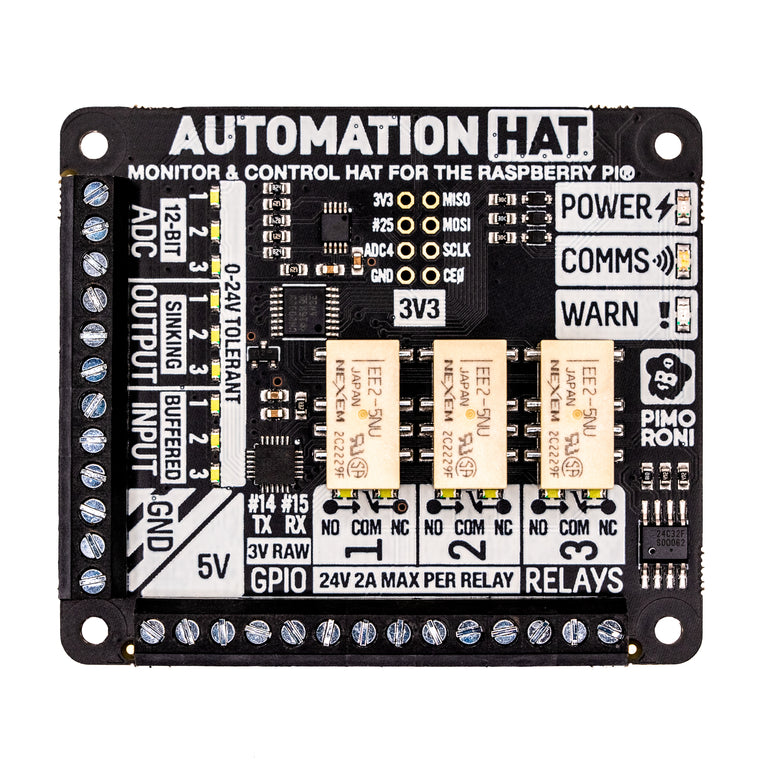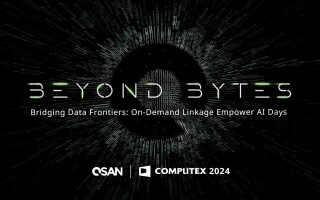Dev Kit Weekly: Automation 2040 W from Pimoroni
December 01, 2023
Video
CLICK HERE TO ENTER THE RAFFLE
The Automation 2040 W board is an industrial and automation controller that features at its center a Raspberry Pi Pico W microcontroller board. As you may or may not know, the Pico family of boards — including, of course, the Pico W — is powered by Raspberry Pi’s debut microcontroller chip, the RP2040, which allows for features like a dual Arm Cortex M0+ that runs at up to 133Mhz, as well as 264KB of SRAM and an additional 2MB of QSPI flash.

Now, what’s fun about our little board here is that the W stands for wireless — which means it includes support for 2.4GHz wireless interfaces like Bluetooth Low Energy and classic. Very useful in those industrial and automation use cases that benefit from your devices being able to communicate to each other and/or the Internet.
But what really sets this little guy apart is its versatility, thanks in large part to the features present from Pimoroni’s Raspberry Pi Automation HAT. It includes relays, analog channels, powered outputs, and buffered inputs — normally, all features are 24V tolerant, but this includes an extended voltage rage of up to 40V that make it easier to control things like fans, solenoids, motors, electronic locks, and more. In general, the Automation 2040 W is compatible with 12V, 24V, and 36V systems, and it requires a power supply of 6V to 40V.

As is typical, expected, and required of any piece of development hardware, of course this kit needs software to do anything except be a paperweight, and it’s compatible with included C++ and MicroPython libraries. According to Pimoroni, you’ll get better performance capabilities with C++, but they recommend getting started with provided MicroPython builds if you’re a beginner. The board’s product page includes links to examples, tutorials, and function references for both libraries.
One last thing —or things — worth noting for the Automation 2040 W are the included breakout connectors. The board includes both Qw and ST connectors for Qwiic or STEMMA-QT breakouts, and the product page also includes a link to a list of breakouts that are currently compatible with the board’s C++/MicroPython builds to make figuring that out simple and easy for you.
Now, if you’d like to get your own Automation 2040 W to start connecting and controlling your industrial and automation devices, they’re available on Pimoroni’s website for around $73.85. Or you can enter the raffle below for a chance to win our Automation 2040 W for absolutely free. Good luck!




